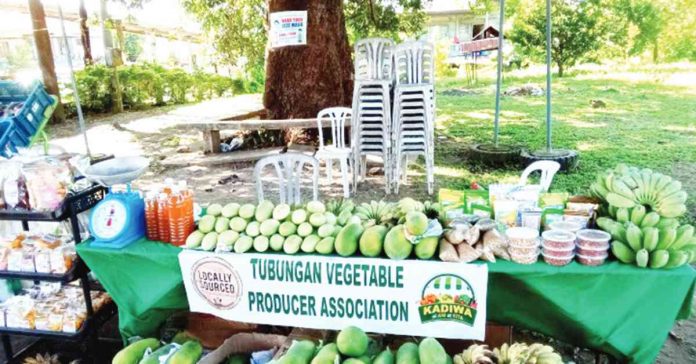
ILOILO City – Two Kadiwa food pop-up stores will start to operate in the municipality of Tobias Fornier in Antique province and in Batan, Aklan in the first quarter of this year.
Lea Veloso, Kadiwa focal person of the Department of Agriculture Agribusiness and Marketing Assistance Division (DA-AMAD), said they will be joining the opening of the Sambayang Festival of Tobias Fornier today to talk to suppliers willing to join and help sustain the program.
She added that the local chief executive of Tobias Fornier wanted to have an economic activity for farmers, fisherfolks and mothers to capacitate them to become entrepreneurs.
The program will also be launched on Feb. 28 in Batan town in time for the opening of their gender and development month-long celebration.
Since it is a gender-related program, most of the suppliers are expected to be from the women’s sector.
“We consider as venues (the) fourth class municipalities in preparation for the Mandanas. For this year we target two but we never stop with our call for the provinces if they can set up their own Kadiwa. We will just assist them,” Veloso said.
Local government units (LGUs) are encouraged for their Kadiwa stores to operate at least twice a month.
Kadiwa pop-up stores will operate within a certain period and the schedule of selling and store operations will vary.
To date, pop-up stores are operating in selected areas in this city, and in the offices of the electric cooperatives of Tigbauan and Pototan towns in Iloilo province.
There are also Kadiwa outlets or those that operate with a permanent store/facility that is managed, operated and owned by enhanced Kadiwa farmer/fisherfolk associations and cooperatives, and community-based organizations beneficiaries.
The Kadiwa outlets operating daily are in Patnongon, Antique; Tubungan, Miag-ao and Koop Naton in Tigbauan; and three venues in Bacolod City.
Veloso said Kadiwa aims to make accessible and available quality and affordable agri-fishery products to the consuming public.
“When you say Kadiwa the price should be 10 percent lower than those in the public market since the product is from farmer to consumers; there is no middle man,” she added. (PNA)/PN







